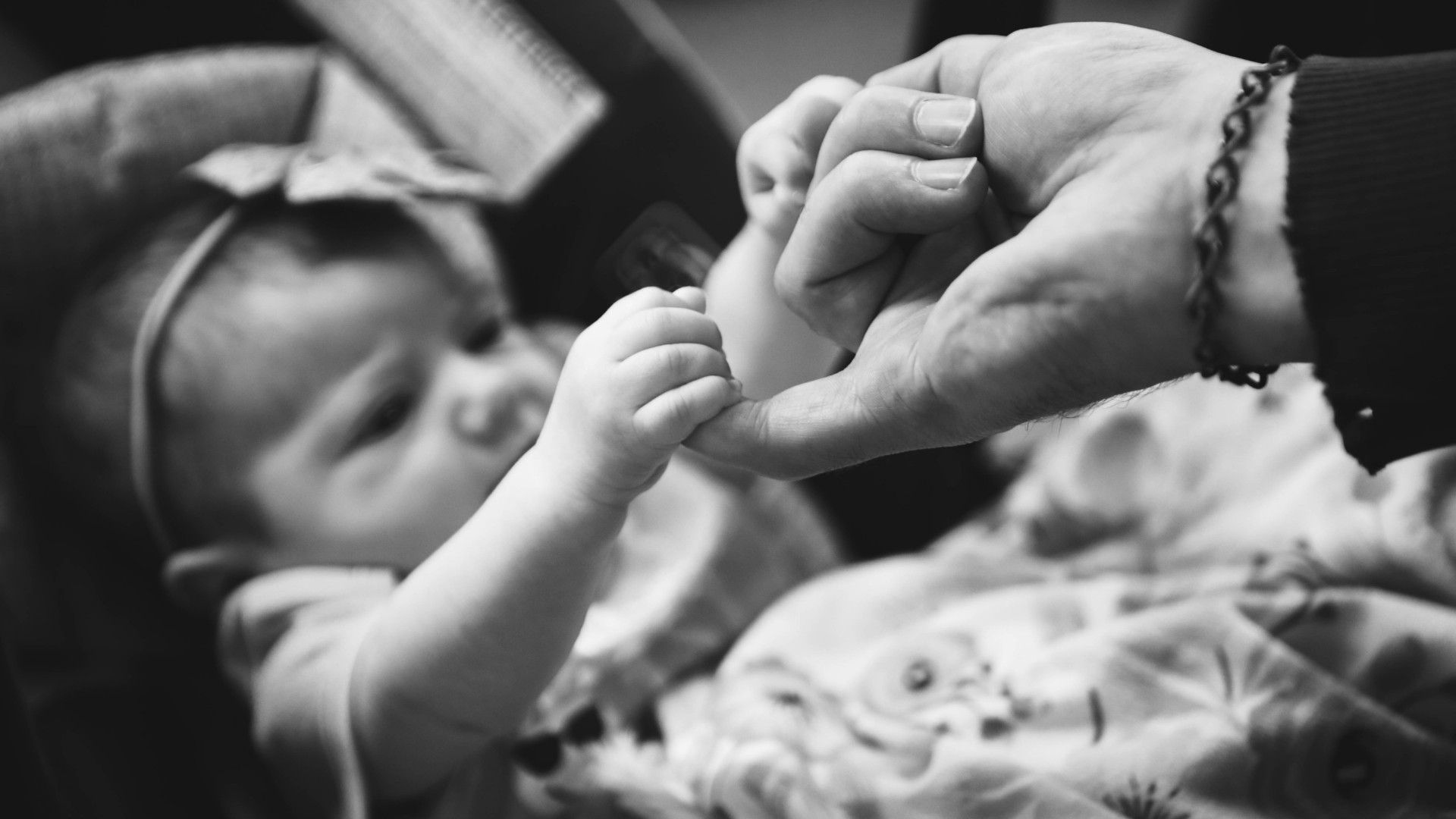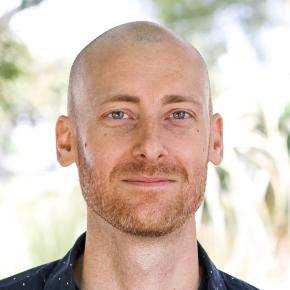Whenever abortion is in the news, our social media feeds fill up with folks weighing in with their opinions. When this happens, we need to be tactical in how we communicate our pro-life convictions. In fact, I’ve written a short article that I think every pro-life ambassador should read before discussing abortion online.
I recently got into a friendly discussion with someone on Facebook named John.1 During the short conversation, John said something that surprised me. He said, “You can be pro-choice and pro-life. I am.”
This statement needed to be clarified, so I used the first Columbo question, what do you mean by that? More specifically, I asked, “What do you mean you’re pro-life with respect to the abortion issue and pro-choice with respect to the abortion issue?”
Here’s how he answered:
Personally, I believe life begins at the moment of conception. So for me, that’s when I’ve chosen to assign the definition of “a life,” purely based on my own beliefs. But not everyone shares my beliefs, nor do I expect them to: I can understand why someone who wants to look purely at the science of it can decide that an embryo is merely a clump of cells, like any other growth process in the human body. My own definition cannot reasonably and scientifically delineate when life begins...
We simply can and should not try to stamp our own choices on the hearts and minds of everyone else, and assume that they must all bend to my own version of the meaning of life. I’m happy to declare my own beliefs on this, but identifying that I’m applying a personal morality is where it ends: it’s prideful and shortsighted to assume/believe/insist that everyone else believes what I do. That’s how I can be pro-life and still honor a woman’s right to govern the processes she oversees in her own body.
This response has been called the modified pro-choice position. I think that’s accurate, but since these individuals want to wear the pro-life label, I’m going to refer to this view as the personally pro-life position. The person holding this view believes that women should have the right to have an abortion, even though he or she personally believes abortion is wrong because it kills a human being.
In a discussion on ABC’s The View, co-host Sunny Hostin described how she is personally pro-life. She said,
There are people like me, who would agree with Meghan [who is pro-life], because I am pro-life by faith. I certainly also believe that life begins at conception. But I also believe like Ana [who is pro-choice]. I don’t want to foist my beliefs on anyone else.
There are two serious problems with the personally pro-life position.
First, this view confuses objective truth claims with subjective preference claims.
The question of when human life begins is a scientific question. And science deals with facts, not feelings. Human life either begins at conception or it doesn’t. This is not the kind of thing that can be true for me but not for you. It’s not a matter of personal preference. Rather, it is an objective feature of reality.
It surprises me that so many people don’t get this. It may help to use a different scientific claim to make this clear. Imagine I personally believe the earth is flat (and that there is a vast conspiracy to trick people into believing the earth is spherical). Can the claim that the earth is flat be true for me but not for you? No, the earth is either flat or it isn’t. That is to say, either the earth is flat—and that would be true for everyone—or the earth is not flat—and that would be true for everyone. The earth cannot actually be flat for some and not for others.
Likewise, either human life begins at conception—and that would be true for everyone—or human life does not begin at conception—and that would be true for everyone.
Fortunately, we’re not left guessing when life begins. The science of embryology unequivocally confirms that a living, distinct, whole human being comes into existence at the moment of fertilization.
For example, The Developing Human: Clinically Oriented Embryology—a human development textbook written for medical students—states,
Human development begins at fertilization, the process during which a male gamete or sperm (spermatozoon development) unites with a female gamete or oocyte (ovum) to form a single cell called a zygote. This highly specialized, totipotent cell marked the beginning of each of us as a unique individual.2
Furthermore, in the textbook titled Before We Are Born: Essentials of Embryology and Birth Defects, it says,
There are different opinions of when an embryo becomes a human being because opinions are often affected by religious and personal views. The scientific answer is that the embryo is a human being from the time of fertilization because of its human chromosomal constitution. The zygote is the beginning of a developing human.3
Many more science textbooks could easily be cited, but this is enough to show that the science supports the pro-life position: A unique human being begins at fertilization.
Scientific claims—like the curvature of the earth and when human life begins—are objective truth claims about reality. But let’s pretend that the science of embryology was inconclusive and we didn’t know when human life begins. That is, the truth is out there, but we don’t know it. Even if this were the case, this would still be an argument against abortion.
If it’s even possible that abortion kills an innocent human being, then we shouldn’t be engaging in an activity that could possibly be killing another human being.
Imagine you’re in charge of demolishing a 10-story building. The explosive charges are laid throughout the building. But before you push the detonator, you ask your foreman, is the building all clear? That is, are there any human beings still inside? The foreman replies, “I don’t know. Some people personally believe there are people inside, but other people don’t.”
Do you push the detonator? Of course not. If you don’t know, you don’t proceed.
In the same way, if we don’t know when life begins, then abortion could be killing an innocent human being. Therefore, unless you know for certain that it’s not a human being in the womb, you don’t kill it.
But, again, we do know—from science—that human life begins at conception.
Second, this view confuses objective moral claims with subjective preference claims.
A subjective preference claim is a claim about your personal opinion. The truth of a preference claim depends on the person making the claim. So if I claim, “Brussels sprouts are horrible,” then that claim is true for me. Of course, different people have different preferences. Therefore, the claim that Brussels sprouts are horrible is the kind of claim that can be true for me but not for you.
An objective moral claim—on the other hand—is not a matter of opinion. It has nothing to do with one’s likes and dislikes. The truth of a moral claim is independent of what people believe about it. It is a claim about what one ought to do.
Unfortunately, the modified pro-choice position treats the morality of abortion as if it’s just personal preference.
To highlight this confusion, let’s modify Sunny Hostin’s comment by making it about slavery instead of abortion. Imagine she said, “I personally believe that slavery is wrong, but I don’t think I should foist my belief onto anyone else.”
We could also apply John’s statement to the morality of slavery: “I’m happy to declare my own beliefs on this, but identifying that I’m applying a personal morality is where it ends: it’s prideful and shortsighted to assume/believe/insist that everyone else believes what I do. That’s how I can be against slavery and still honor a person’s right to own a slave.”
The moral claim that slavery is wrong isn’t the kind claim that can be true for me but not for you. The kidnapping and enslavement of human beings is wrong for everyone, at all times, and in all places. It’s not merely a personal preference that should be left up to individuals to choose for themselves. The act of slavery is an objective moral evil. That’s why we have laws forbidding the trafficking of human beings. In fact, all trafficking laws are forcing the morality that slavery is wrong. And that’s a good thing.
True, there are individuals around the world who like slavery. After all, the dark world of human trafficking has made some people very rich. But the fact that some personally prefer slavery doesn’t change the fact that slavery is wrong (because morality has nothing to do with the personal preferences of individuals).
We should recoil at the idea of someone being personally opposed to slavery while at the same time believing others should have the right to own slaves. Similarly, it should disturb us to the core when people say they personally oppose abortion because it kills an innocent human being, but at the same time believe that women should be able to have an abortion—kill an innocent human being.
No, if slavery is objectively wrong, then no one should have the right to own a slave. Likewise, if abortion is objectively wrong, then no one should have the right to have an abortion.
Third, there is no practical difference between those who profess to be personally pro-life and those who are pro-choice.
Interestingly, when Sunny Hostin describes her view, co-host Joy Behar interrupts and says, “So you’re not pro-life; you’re pro-choice.”
I think, practically speaking, Joy Behar is right.
Again, if Sunny Hostin had been talking about slavery, co-host Joy Behar (and everyone listening) would have interrupted and said, “So you’re not pro-abolition; you’re pro-slavery.”
In his book Pro-Life Answers to Pro-Choice Arguments, Randy Alcorn says,
Some people have the illusion that being personally opposed to abortion while believing others should be free to choose it is some kind of compromise between the proabortion and prolife positions. It isn’t. Prochoice people vote the same as proabortion people. Both oppose legal protection for the innocent unborn. Both are willing for children to die by abortion and must take responsibility for the killing of those babies even if they do not participate directly. To the baby who dies it makes no difference whether those who refused to protect her were proabortion or merely prochoice.
Fundamental to the pro-life position is the belief that abortion is an unspeakable injustice. Therefore, it must be stopped.
We don’t approve of a woman’s right to kill an innocent human being. We don’t justify injustice. We don’t defend discrimination. We don’t endorse evil.
Anyone who does is not pro-life.

